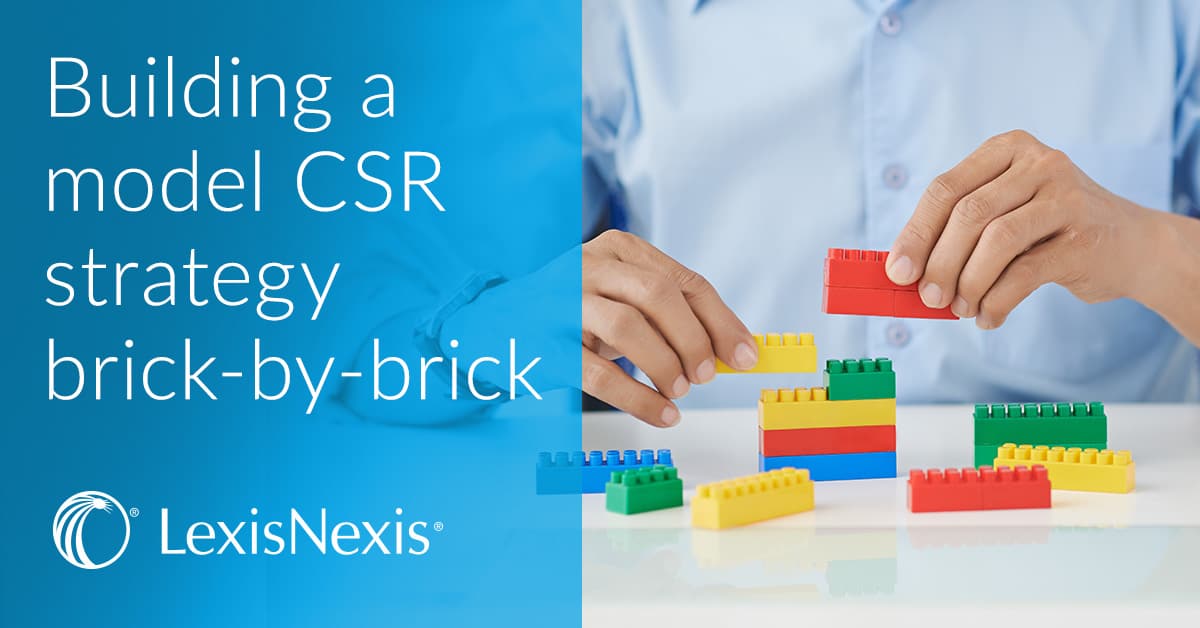Latest Blogs
What the Kroll Report Means for Your Business and How it Manages...
This year’s Kroll Fraud and Financial Crime Report found companies are growing increasingly concerned that third parties are driving a higher risk of financial crime. We read through the report to pull...
Six Things to Know About Emerging HRDD Regulations
Millions of companies around the world have been impacted by regulations which mandate them to carry out ESG and human rights due diligence (HRDD in the last few years–or they soon will be. These regulations...
What the Ukrainian War Has Meant for Third Party Risk Manage...
From Stricter Sanctions to Broken Supply Chains: What the Ukrainian War has Meant for Third Party Risk Management February 2024 will mark two years since the latest conflict in Ukraine began. As well...
If You Haven’t Addressed These 5 Third-Party Risks, You’re Behind...
Third parties help companies to deliver their products and services, but they also expose them to regulatory, financial, strategic and reputational risks. In the latest blog in our third party risk series...
Financial Crime is on the Rise. Here’s How Your Company Can Stay...
Financial crimes such as bribery, corruption and money laundering are becoming more common and more complex. One of the most common reasons for a company becoming implicated in alleged financial crime...

LEGO Group will sell some pieces made from plant-based plastic this year—it’s the first step in its bid to make all products and packaging from sustainable materials in 2030. LEGO prioritises corporate social responsibility, earning it the ranking as the company with the best reputation by a global index last year. We ask what other companies can learn from LEGO’s example.
Laying the foundations for an ethical reputation
LEGO announced that its first pieces to be made from plant-based plastic sourced from sugar cane will go on sale this year. The new pieces will make up less than 2% of the total amount of plastic produced by LEGO. But the company says it is only the first step its aim to use sustainable materials in all its core products and packaging by 2030—meaning that every one of its famous bricks will be made from sustainable materials.
LEGO’s commitment to CSR was rewarded last year when it came top of a global ranking of companies’ reputations for social responsibility, which is organised by the Reputation Institute in the United States. LEGO scored 74.4 out of 100, beating Microsoft and Google into second and third place respectively. The index was based on more than 170,000 ratings from people in the world’s 15 largest economies, including the USA, Brazil, Australia, France, Germany and the UK.
In an exclusive interview with LexisNexis, the Reputation Institute’s Strategic Thought Leader, Stephen Hahn-Griffiths said LEGO is "a highly purposeful company that truly employs corporate social responsibility from top to bottom." He singled out its educational programmes as particularly effective. "LEGO does not just pay lip service to CSR but it builds programmes that support the premise of learning through play," he added.
Trust brings rewards
LEGO announced this week that its profits fell by 17% in 2017. Its leaders say this is partly because it produced too many bricks, and they expressed optimism about a double-digit growth in sales in the lucrative Chinese market. But the general trend for the company's revenue has been up in recent years - prior to 2017, its sales grew for twelve years in a row.
LEGO’s move to manufacture pieces made from plant-based plastic was great news for journalists, who crammed puns like ‘child’s play’ into their headlines. The new policy has received mostly positive media coverage in dozens of outlets including The Guardian, CNBC, The New York Daily News, and ABC in Australia. The reaction on Twitter, where brands can face a lot of criticism, was mostly positive. Twitter user @wildlifejosh said it was "a great excuse to buy Lego again." While another joked: "Will the ‘green legos’ hurt less when stepped on in the middle of the night?"
It is likely that this positive sentiment will encourage people to invest in LEGO and buy their products. Surveys show that consumers and investors are increasingly likely to only invest in or buy from companies who meet their ethical, social and environmental values. Research suggests consumers will pay 5% more for a product if it is ethically sourced. Young people feel particularly strongly about companies’ ethics—so LEGO’s ‘green’ credentials will serve the company well when the next generation of parents go toy shopping.
Tone from the top is key
LEGO’s strong reputation for CSR and ethical behaviour is partly because of the tone which comes from the top of the company, according to Stephen Hahn-Griffiths of the Reputation Institute. "Jørgen Knudstorp [LEGO’s executive chairman and former CEO] is basically living and breathing the LEGO brand and its commitment to social responsibility," he said. Mr Hahn-Griffiths said the Reputation Institute has noticed a clear trend towards investors and consumers expecting CEOs to take a stand on important ethical, social and environmental issues. "The CEO is the lightning rod for how a company is viewed and needs to take a stand on things that matter," he said. Introducing a company-wide commitment to CSR requires a lot of work—it is anything but ‘child’s play’. But the case of LEGO should show other CEOs that it brings rewards.
What's next?
1. Check out our exclusive interview with Emmanuel Lulin, Vice President and Chief Ethics Officer at L’Oréal.
2. Check out Nexis Diligence, our solution brings together all the intelligence you need in one place to conduct consistent due diligence checks and comply with anti-money laundering (AML) and anti-bribery and corruption (ABC).